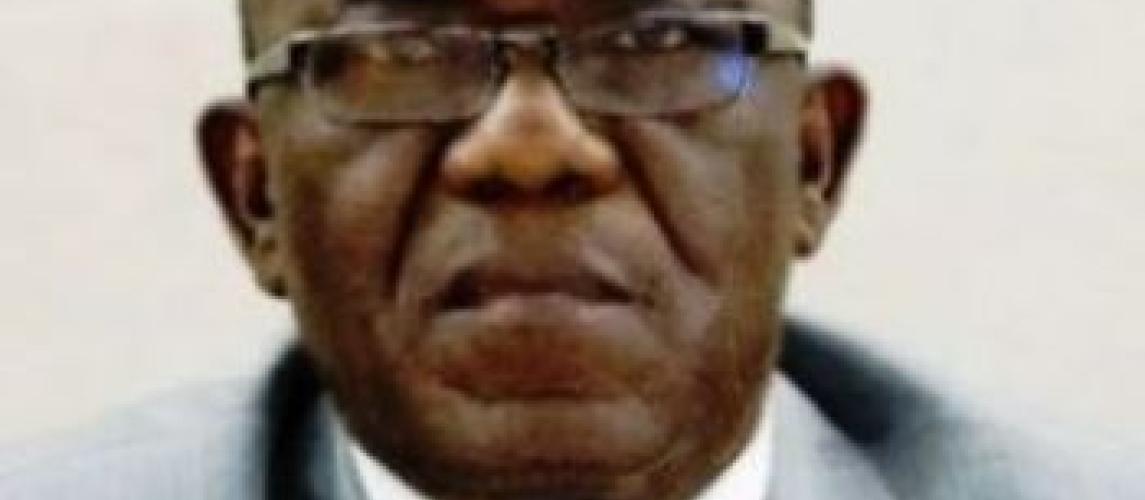
The Ratification of The Trade Facilitation Agreement: A Nationalistic Decision
Liberian Chief Executive, George Manneh Weah, in August, 2019 submitted several bills to the Liberian Legislature for ratification. One of them is the Trade Facilitation Agreement (TFA), a key element of the World Trade Organization (WTO), of which Liberia is the 163rd member.
Background:
Liberia was admitted into the WTO in 2016, after her Memorandum of Foreign Trade Regime was endorsed following several years of constructive engagement with relevant stakeholders. It was during the Administration of Former Liberian Chief Executive, Madam Ellen Johnson- Sirleaf.
The process leading to Liberia’s membership with the World Trade Organization was not really easy, the fact that she had to meet up with certain requirements, as contained in the WTO regulations.
One of these had to do with commitment to cross what was seen by experts as the last but, perhaps a great hurdle. I am making reference to where Liberia became a full-fledged WTO member on July 14, 2016, nearly a month after notifying the body of its Protocol of Accession. Again, like I said at the Genesis of this article, it took us nearly nine years of sustained and constructive collaboration with relevant partners. In the middle of December in 2015 during a Ministerial Conference (MC10) ( Nairobi Conference), WTO member countries endorsed Liberia’s request for membership.
The brilliant and somewhat heroic fight by Liberia, despite the difficulties associated with the long journey to the WTO accession process sparked a rewarding commendation from the Director General of the organization, Roberto Azevêdo, who described the huge impact WTO membership usually brings.
As a mark of respect for Liberia’s demonstrated hard work, he paid tribute to Liberia and pledged to keep working along with us as a country to ensure that benefits associated with our Country’s accession were realized.
At the time, then Liberian President Ellen Johnson Sirleaf told the gathering that the path to accession came with, in hers word: “Milestones of economic growth with a GDP growth from 5.3 percent in 2005 to 8.7 percent in 2013.” To close on the background of Liberia’s WTO accession, history shows that Liberia started negotiating tariff concessions and commitments that bind tariff rates for agricultural products at 23.8 percent, and non-agricultural products at 27.2 percent. Records reflect that we also made commitments in 11 service sectors, including telecommunications, legal services, banking, and medical and dental services.
As it is often said that government is continuity, the current leadership, under President George Manneh Weah, is clearly making good use of the principle of continuity in the governance process, especially for policies and decisions that are deemed good, meaningful and intended to yield a lot of dividends for Liberians, with the submission and subsequent ratification of the TFA being of no exception.
Bravo, Mr. President!
Here in Liberia, the arm of government that plays a pivotal role or sphere heads trade-related issues or negotiations is the Commerce and Industry Ministry, headed by Professor Wilson K. Tarpeh.
Upon his arrival from a WTO conference in Geneva, Switzerland, in early July, 2019, Minister Tarpeh told journalists through a Commerce Ministry statement that the CDC-led Government, under President George Manneh Weah, was committed to satisfying relevant WTO instruments that are key to boosting effective trade in the country.
Professor Tarpeh spoke with confidence about Liberia’s commitment to ratifying the TFA, which would set forth a series of measures for expeditiously moving goods across borders through best practices from around the world. At the news conference in Monrovia on Saturday, August 10, 2019, he noted that as a manifestation of Liberia’s commitment to effective and value added trade; constructive steps were taken by government.
Some of the actions include reforming the importing regime by reducing the time needed for import, in line with efforts to reduce their final cost to the consumer, as well as ongoing efforts by Government to build a special economic zone, that will specifically serve as incubator for exporting firms and model of what Liberia could look like with developed infrastructure, lower energy cost and faster administrative processes. These constructive efforts also include extensive negotiations and talks with trading regime stakeholders to identify other bottlenecks that impede trade flows in the country.
Thanks that the Liberian Government was able to act promptly to ratify the TFA. As a country, we stand the chances of receiving a financial package in the tune of $US40m (United States Dollars), as a result of the ratification of the Trade Facilitation Agreement.
As said during Commerce Minister Tarpeh’s press conference, the funding is expected to come from the international community, including the IMF and the World Bank.
“The significant financial assistance expected from the ratification of the Trade Facilitation Agreement will also yield a lot of other benefits, including capacity-building facilities,” the Liberian Chief Trade Negotiator observed during the August 10, 2019, news conference.
Taking into account that Liberia has a lot of challenges to tackle, I once more wish to congratulate the President, members of the 54th Legislature, Commerce Minister Prof. Tarpeh and team, including stakeholders for collaborative efforts that saw the recent ratification of the Trade Facilitation Agreement (TFA).
About the author:
Jacob Parley is the current Communications Director at the Commerce Ministry and member of the ECOWAS Economic Journalists Network.
